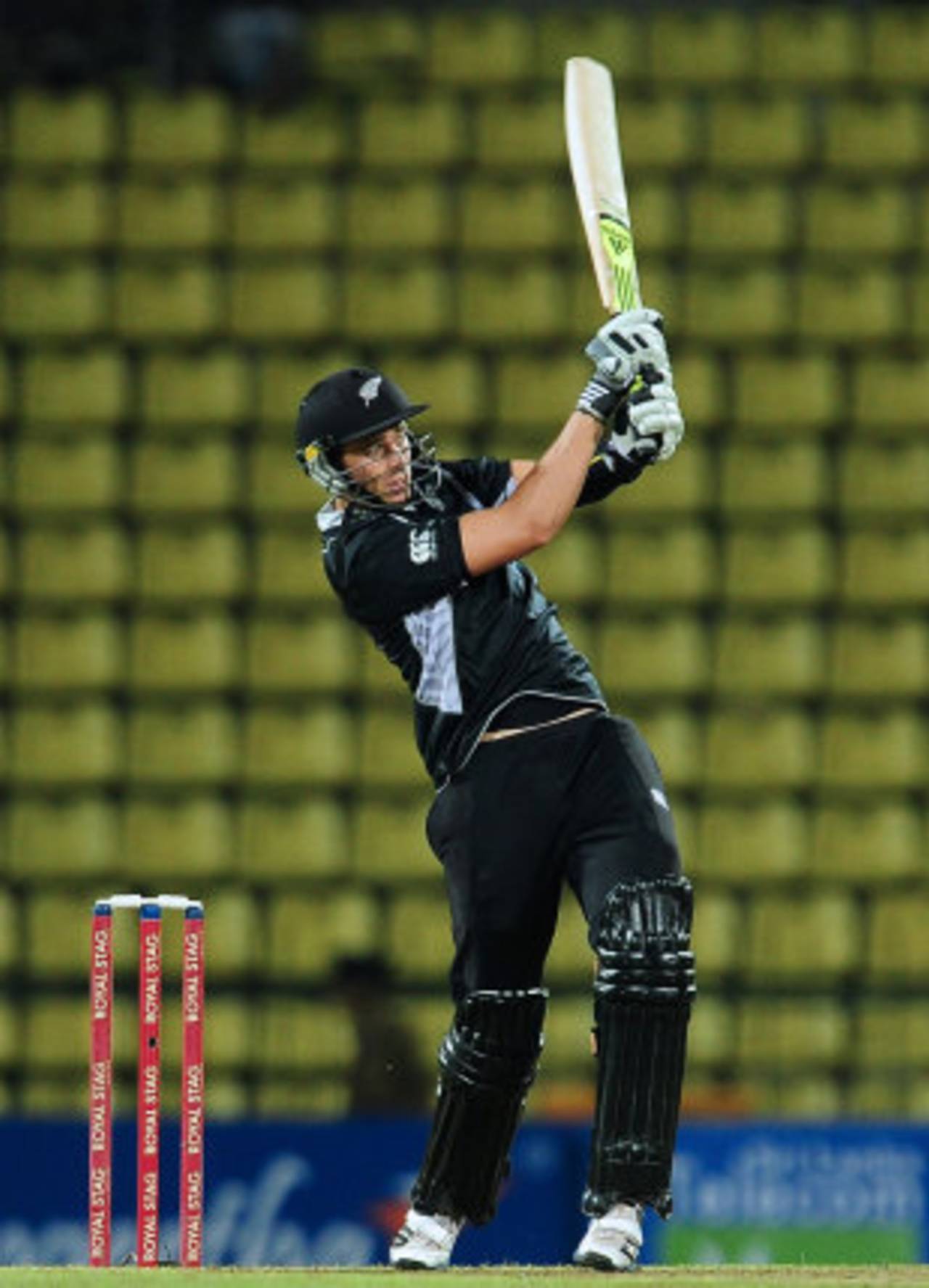Over the past two years, criticism of New Zealand's batting has almost become passé. So common have the collapses been, that each fresh clatter of wickets pushes their catastrophes toward the realm of the banal. Several among them are masters of making hay while the sun shines, but all too often, when the opposition have the better of the conditions and the bowlers to exploit them, New Zealand's returns turn to straw. They will admit that their output has been dismally meagre, but New Zealand's batsmen have been less able to express what they are doing to rectify their rut.
Their shortcomings were laid out emphatically again, on a lively pitch in the Twenty20, and they must learn their lessons quickly if they are to avoid more embarrassment on a similar surface in the first ODI. On Tuesday, the top six managed 20 between them, with a high score of eight. Tom Latham is young and eager to impress, but he might better serve New Zealand if he learnt to size up the bowling and conditions and adjusted his game accordingly. A swipe across the line is not the stroke to play to a seam-up delivery that moves in appreciably through the air. The learning curve is steep at the top level, particularly for freshers who have barely graduated from the New Zealand domestic scene, but the team and Latham himself will gain little by using youth as an alibi for mediocrity.
Not that he can learn much from the older lot, who are supposedly more battle-hardened. Brendon McCullum charged and slogged his way to a top edge. That approach brought him screeds of praise when he thumped his way to 123 against Bangladesh at the same venue just over a month ago. But this attack was not Bangladesh, and he was operating on a surface far more difficult to tame. With the side only having made 10 from 3.4 overs, his keenness to aggress might have been understandable. But against one of the best inswing bowlers in limited overs cricket, on a surface that offered even a man of Nuwan Kulasekara's stature, considerable bounce, playing that release stroke was always going to be Russian roulette. Not long after, having seen Thisara Perera move the ball in appreciably, Ross Taylor tried to cut one that came back at him and nicked through to the keeper.
Sri Lanka were not comfortable during their two overs either, but aside from Dilshan Munaweera, who hasn't yet proven himself at this level, their top-order batsmen largely tend to assess conditions, and shelve or reprise strokes from their armoury accordingly.
New Zealand know that if Thursday's pitch is as green as it is expected to be, they will have to put some shots in the locker, and play attritional cricket. Their temperament has been so woefully inadequate for that restrained style of play, that around a year ago,
Taylor spoke of how New Zealand batsmen had been
"bored out" on a slow pitch that required knuckling rather than flashing around their attacking strokes. If faced with similar conditions, New Zealand must leave the ball well and often, defend almost as much, and play "boring" one-day cricket, where only the truly bad balls are sent to the fence.
"In Twenty20 you've only got a short period of time to score as many runs as possible. In fifty overs, you can go out there and you don't have to be as attacking," Taylor said ahead of Thursday's match. "If it's the same kind of pitch it goes back to the early days of one day cricket, where it's about absorbing pressure and conserving wickets up front and lower strike rates for the batsmen."
New Zealand are also aware that their spiraling reputation is hurting the number of opportunities they get to redeem themselves, particularly in Tests. They have not played an away Test series of more than two matches since late 2010, and are not due to play an away three-Test series again until mid 2014.
"We'd like to play as many Tests as possible and three Test-match series are rare for us," Taylor said. "We need to get better as a team and start winning and hopefully be able to convince these boards to give us three-Test series. Time is a constraint and sometimes you can't fit in three Test matches. But hopefully we can keep improving as a Test nation and be more competitive and push these teams. "
It is laudable that New Zealand are not in denial about their woes, but acceptance of one's flaws is not is not satisfactory in elite sport, unless it is followed by remedy. New Zealand continue to say they want to improve, and on a difficult pitch, they now have the chance to prove that they are not just paying that idea lip service.
Andrew Fernando is ESPNcricinfo's correspondent in Sri Lanka
